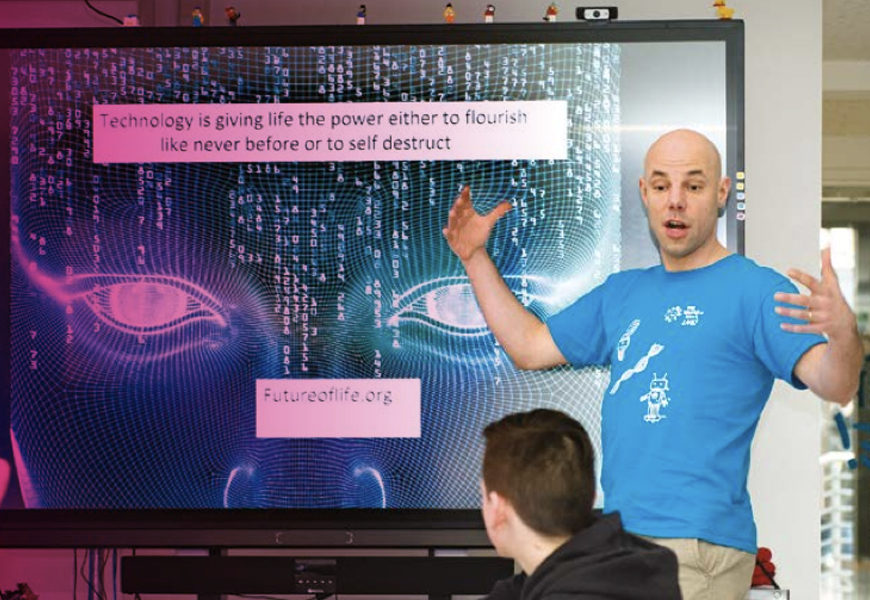Summary
Digital Transformation refers to the adoption of new technologies in service delivery, and infrastructure investment to enable it. Despite COVID-19 creating unforeseen challenges, strides have also been made in the digitisation of Health and Care & Education services.
Making A Difference
The article below features some examples of the difference already being made, such as the 60,000 iPads already distributed to schools across Glasgow. As a facet of the Digital Glasgow Strategy, Digital Transformation progress updates are included in its annual reports.
Glasgow’s Digital Transformation portfolio encompasses a range of programmes, which relate to the adoption of digital technologies to transform how services are delivered, and associated investment in underlying infrastructure to enable services to be transformed.
These programmes include:
- The migration from an on-premises data centre to a more secure and resilient hosted service
- Increased capacity of digital connectivity to council offices and schools
- The development of the “MyGlasgow” online services and “Pay It” services
- The implementation of a new asset management platform
- The implementation of the new Open Data Hub
However, Digital Transformation continues to evolve, providing opportunities to mitigate risks, reduce costs, improve customer experience, empower communities, enhance democracy, and deliver better outcomes for the people of Glasgow. It is therefore important that we proactively plan for further digital transformation.
To achieve this a new Strategic Digital/ICT Planning Board has been established. The Planning Board has established;
- A formal prioritisation framework to help to prioritise demand and opportunities across the council
- An initial version of a roadmap that provides a forward projection of digital transformation in terms of business change and technology change, aligned to the Council Family Renewal Programme and key policy drivers.
- A number of scoping/discovery projects that are developing business cases for further digital transformation that support the roadmap.
Public Services
The impact of the COVID-19 pandemic has been particularly acute within Digital Health and Care. In some cases it has accelerated development, whereas it has deprioritised progress in others. With the switch of the UK’s analogue telephone system planned for 2025, a key priority for the Glasgow Health and Social Care Partnership (as set out in the Digital Glasgow Strategy) is the migration of telecare alarms to digital technology. The Alarm Receiving Centre solution has now been migrated to the Council’s new data centre environment which provides greater resilience and security. Now this is complete the focus has shifted towards making the Alarm Receiving Centre digitally ready and developing plans to migrate the 9,000 community alarms and peripherals in the home to digital technology to be compatible with the new phone network.
Within Learning and Teaching, progress has been made across the city. Over 60,000 iPads have now been distributed for use by pupils across Glasgow and although it is still too early to measure the outcome from this deployment, the monitoring of the outcomes is being coordinated through the Connected Learning Programme against the aims set out in the Digital Learning Strategy. The Connected Learning Programme is also aware that access to technology alone will not realise these expected outcomes. Therefore, through a programme called Digital Leaders of Learning (DLOL), teachers, staff, pupils, and parents can begin to adopt and embrace these new opportunities.
From DLOL, Glasgow has become a Regional Training Centre for Apple Digital Learning. Virtual training has been delivered to support career long professional learning (CLPL) within each area of the city with 50 trainers from all learning communities and all sectors signing up to deliver training in each Local Improvement Group (LIG). Data shows strong participation, with:
- 1265 webinar attendees;
- 742 improvement evaluations;
- 9 creative classroom sessions with an average of 30 teachers in each session;
- 1 Digital Leadership Academy Day with 32 school in attendance;
- and so much more.
Technology has not only provided areas such as Health and Social Care and Education with new innovative opportunities to enhance and better their services, but has also provided the potential to reduce the carbon footprint of Education with respect to reducing the number of hard copy letters, as well as underpinning Glasgow as a Smart Connected City, connecting public services and providing the essential infrastructure to continue this progressive digital journey.

Digital Transformation is a component of the Digital Glasgow Strategy. For a broader view of the strategy as a whole, how implementation adapted to COVID-19, and links to the two published annual progress reports, visit the Digital Glasgow Overview page.



